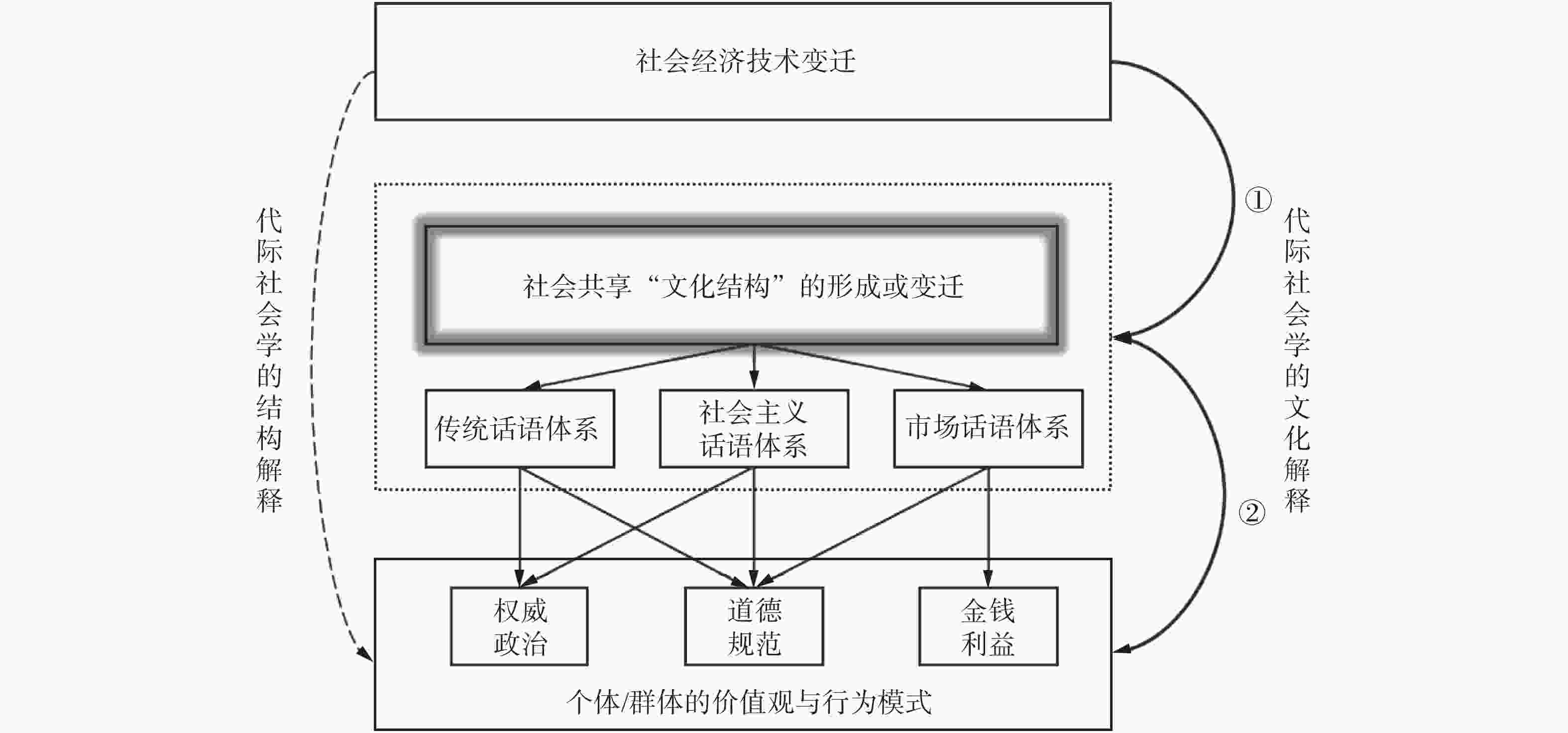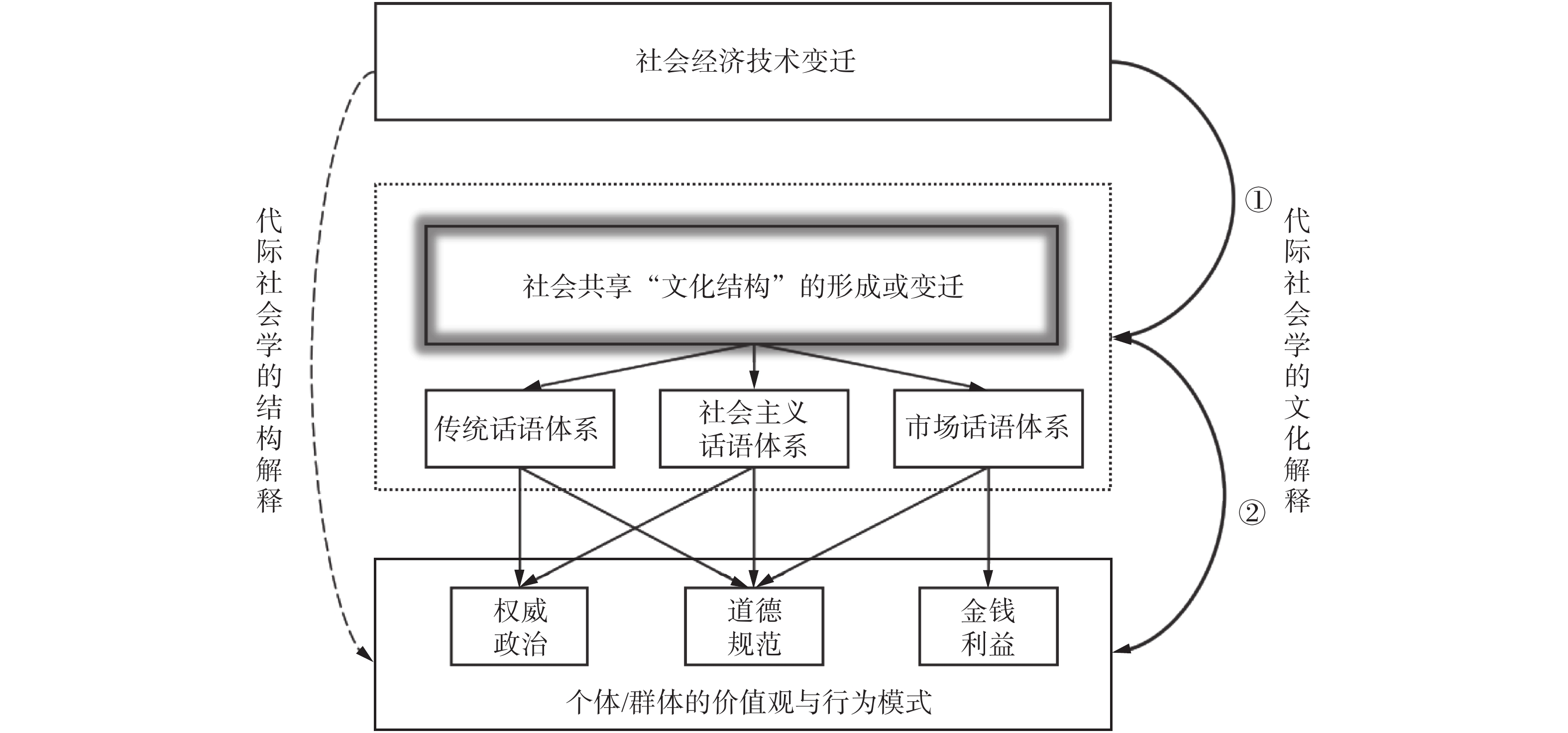新生代价值观和行为模式研究的新路径
作者简介:周怡,复旦大学社会学系教授(上海 200433)
摘要: 通过聚焦新生代价值观念及其行为模式的研究,为理解文化结构如何产生价值观念和行为模式提供一个框架。既有研究存在两点疏失:其一,既有新生代价值观和行为模式研究缺乏聚焦性实质理论。为此,文章将代际秩序纳入社会秩序的考量中,试图从权力遵从、规范共享和利益契约三大经典社会秩序理论出发,观照现有较为零散的青年及代际关系研究。其中,“秩序”作为本质要素,突破了原本仅对青年亚群体的研究囿于中观或微观层面的局限。其二,既有研究在因果机制解释方面,忽略了“文化结构”对社会成员个体或群体价值观及行为模式的传导和塑造。因此,有必要在常规的宏观经济结构变迁引发微观个体价值观形成抑或变动的共识性理解中,借助文化社会学理论工具,增加“文化结构”这一中介传导维度,以完善既有的因果解释路径。并将中国社会的文化结构具体操作化为传统话语体系、社会主义话语体系和市场话语体系的并存。关注这一文化结构的中介作用,对理解中国新生代价值观及行为模式的形成至关重要。
New Paths in the Study of Emerging Generation Values and Behavior Patterns
- Available Online:
2021-10-20
Abstract: This paper casts its foci on values and behavioral patterns of the new and young generation, aiming to build a theoretical framework for understanding the influence of cultural structures on them. In specific, this paper first unearthes two neglects in previous studies. First, focal theories have been neglected in previous attempts to investigate values and behavioral patterns of the young generation. This paper tries to incorporate the concept of “intergenerational order” into “social order.” In so doing, three classical theories of social order (i.e., power obedience, norm sharing, and interest contract) can provide lenses to integrating scattered studies on youth culture and intergenerational relations. By serving as the main element in the theoretical framework proposed in this paper, social order elevates youth studies from the micro- and meso-level to the macro-level. Second, previous studies have neglected the role of “cultural structures” when unravelling the formation of values and behavioral patterns. Therefore, this paper borrows theoretical tools from cultural sociology to interpret how the macro social structure transforms individual cognition and actions. In China, the social structure is represented by the special cultural structure where the discourse systems of tradition, of socialism, and of markets coexist. This “cultural turn” expands the scope of studies on values and behavioral patterns of the young generation.



 下载:
下载:



 沪公网安备 31010102003103号
沪公网安备 31010102003103号